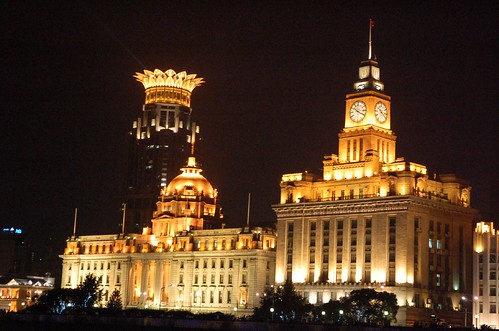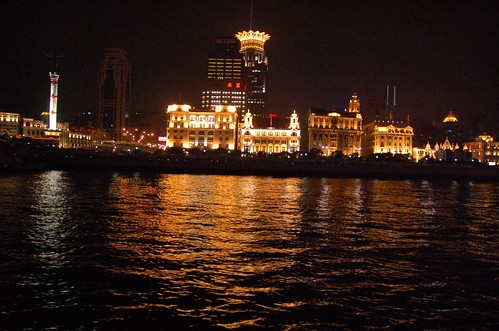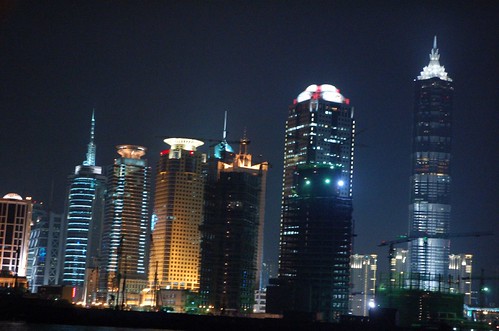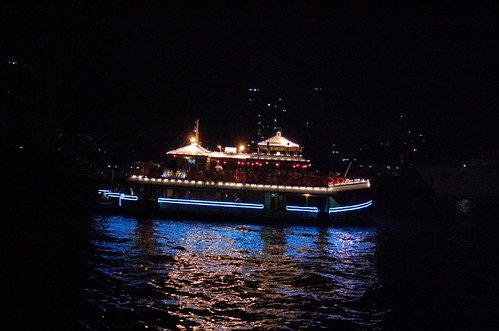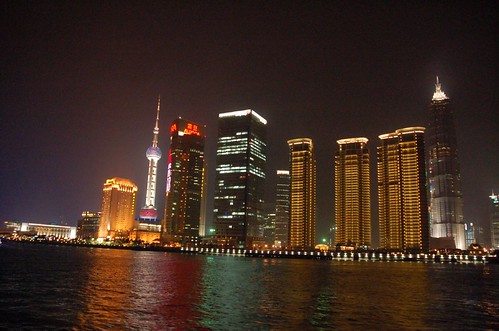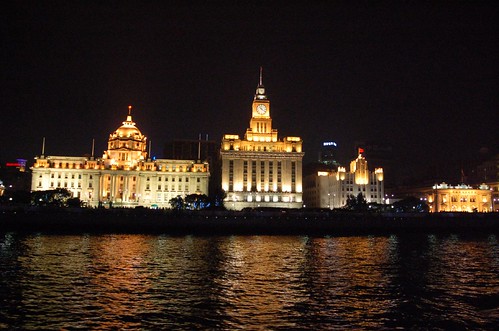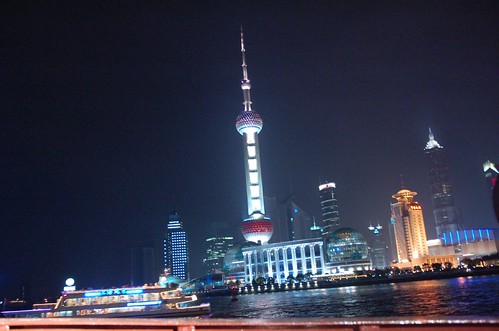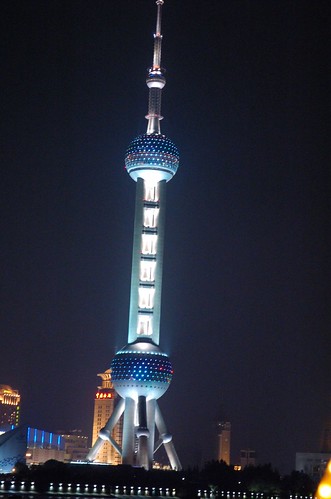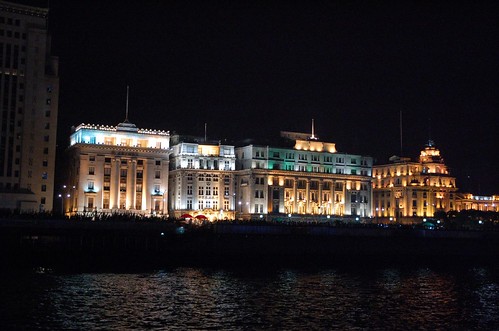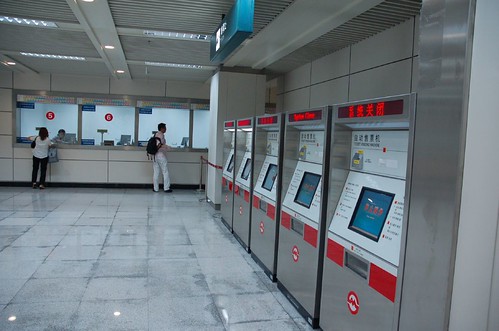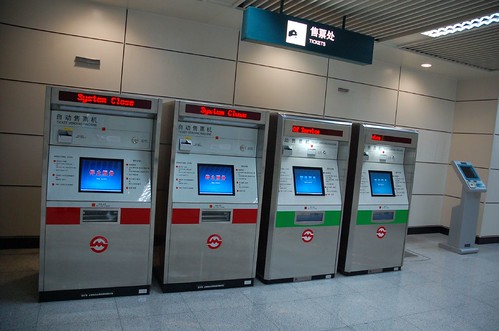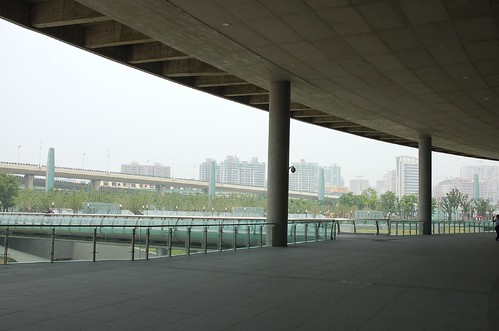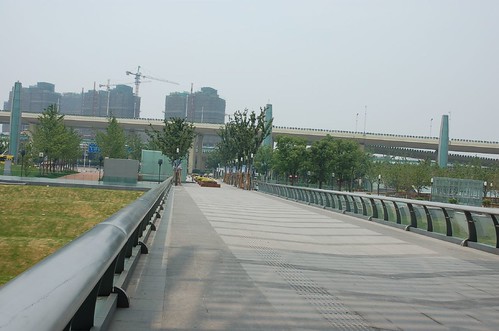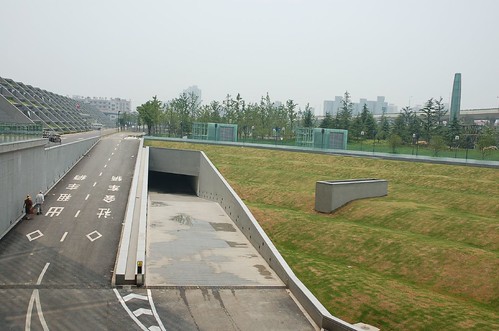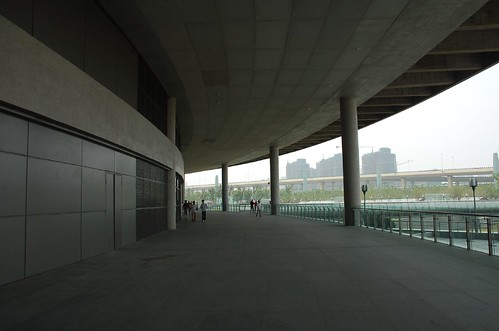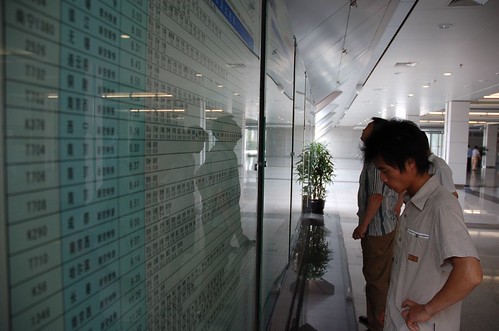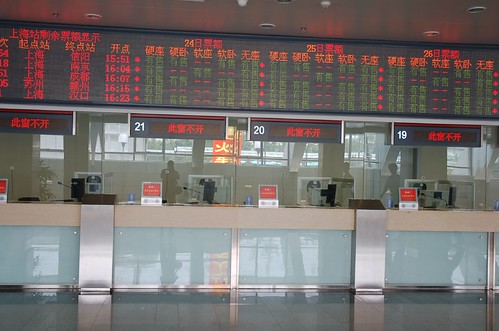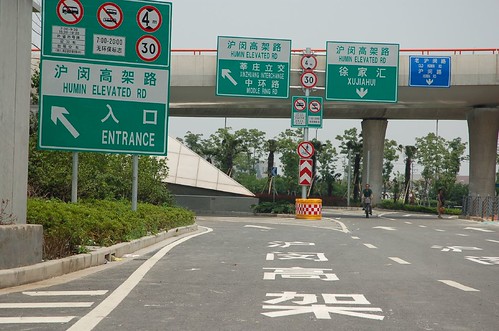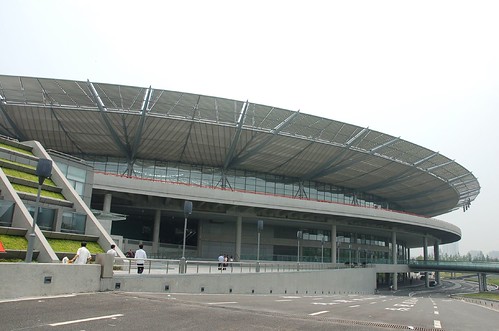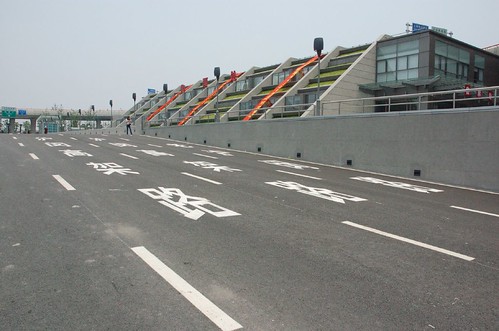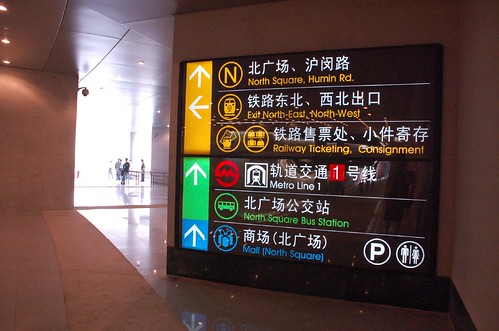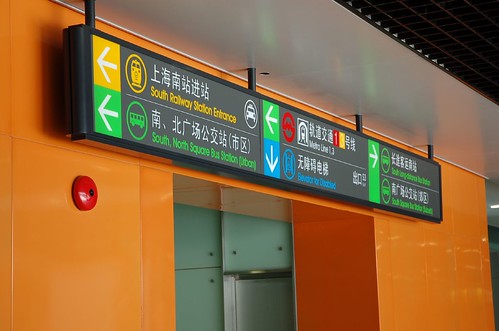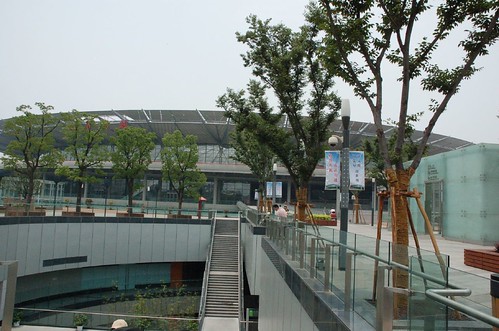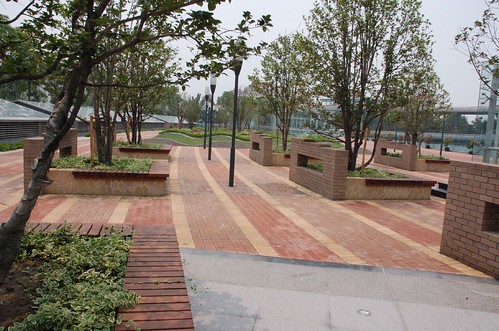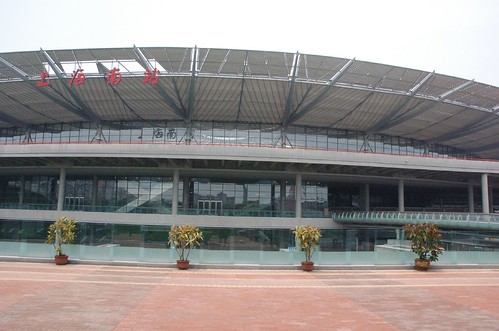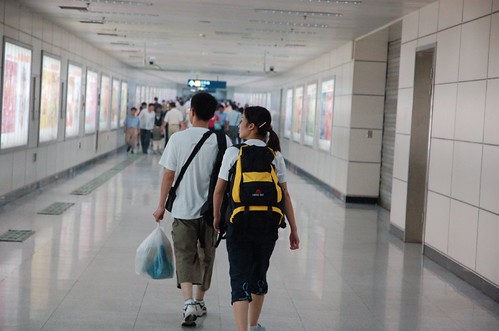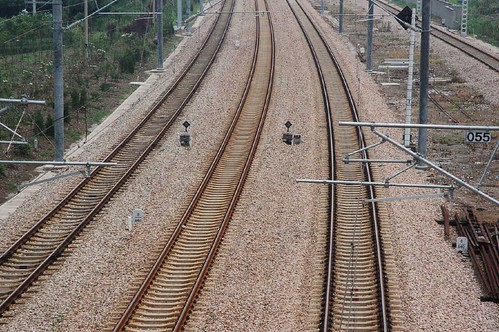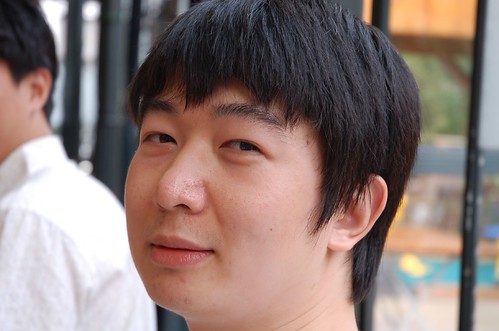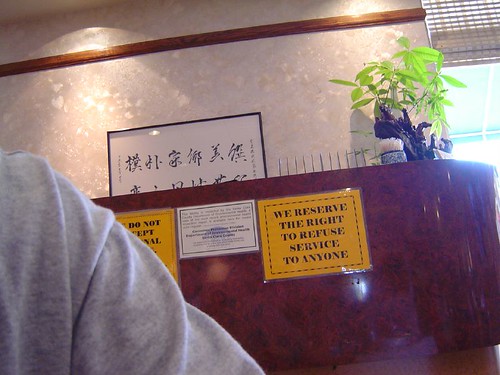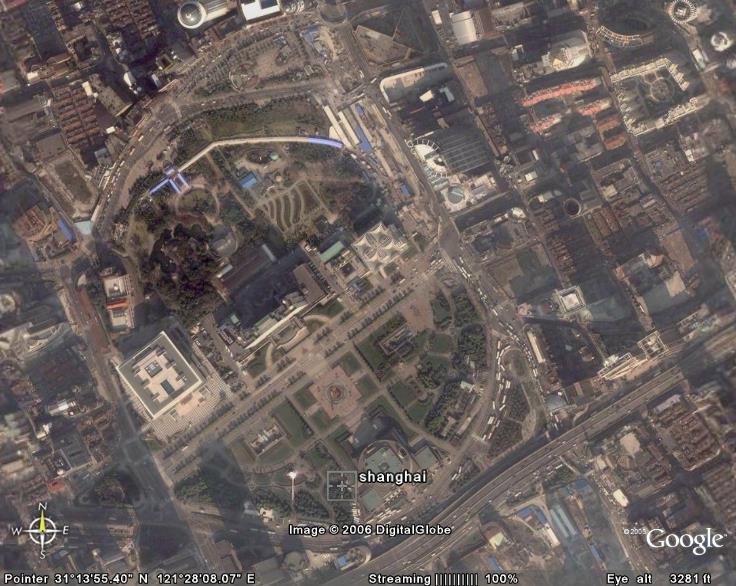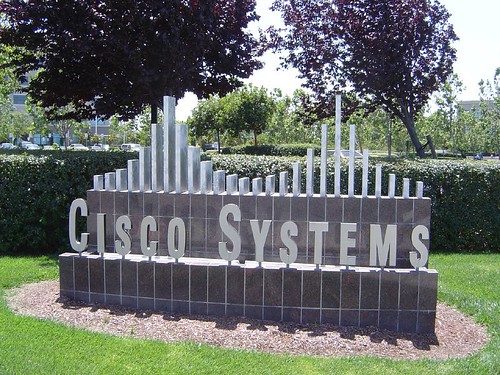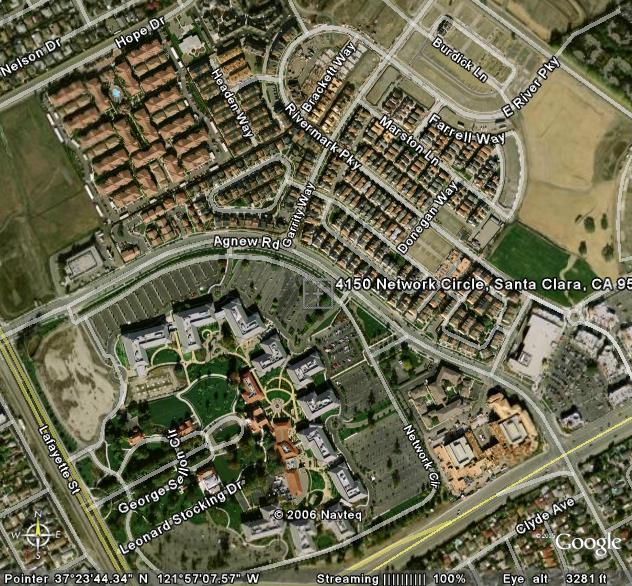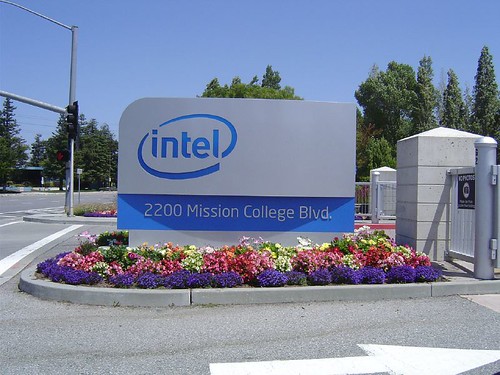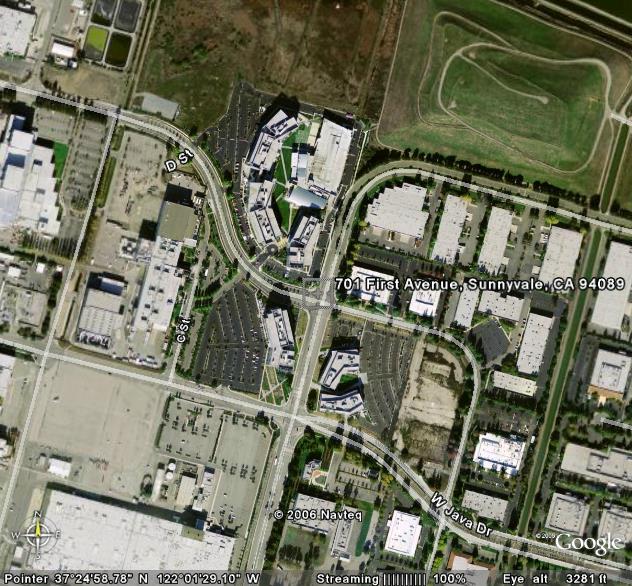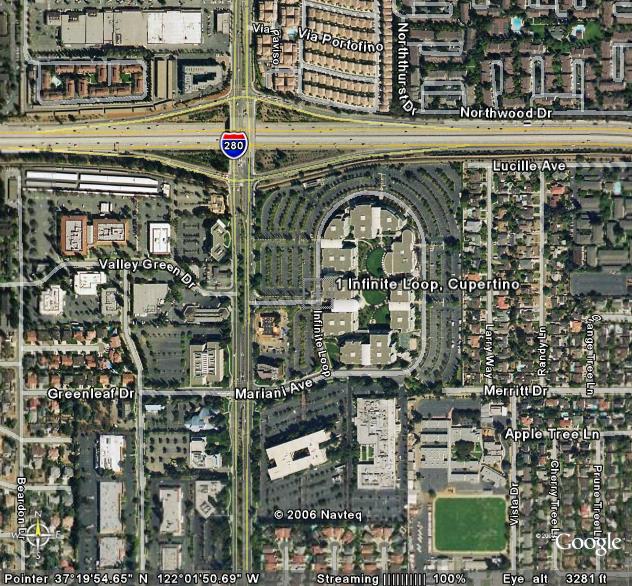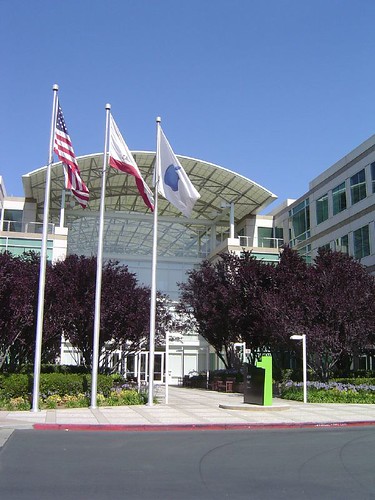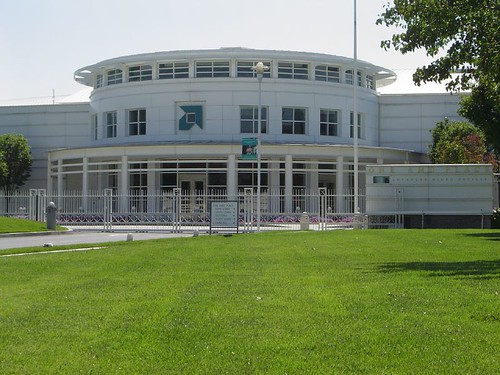Pete raised a very good topic about the One Child Policy and the decision of investing in China or not. Here is Pete’s first post.
Also– Jian Shuo Wang, this is a little off-topic but I had a question myself. I was at a business conference recently where an international consultant was speaking– he’s one of these people that gives advice to American businesses, on where to invest abroad.
Anyway, he said something that shocked me quite a bit. Many of us have been planning investment in China for a while, but this consultant– who used to be a Chinese investor himself– is now advising all of us to avoid investing in China and to focus instead on Latin America, India and Vietnam. The reason for his advice, he stated, is China’s One Child Policy– he said China should get rid of it immediately, within maybe two years, or the investment consultants in the USA are going to recommend that US companies pull all their money out of China.
I don’t know whether he’s right or wrong, but he’s a very important and respected retail business consultant, and he said that China now has the world’s worst demographics, possibly the worst in history, due to the One Child Policy. He said the policy has caused China’s birth rate to plummet rapidly to about 1.6, way below replacement level very suddenly, causing a rapidly aging population with too few young workers to support the senior citizens. In fact, he said China is getting old before getting rich, thus getting old faster than any other country in history. He also said the problem’s even worse since some minorities in China (like the Muslim Uighurs if I recall correctly) do not have to worry about the Policy, only the ethnic Chinese, so the Muslim population in China rises rapidly while the Chinese fall in population, leading to further ethnic conflict. Moreover, he said that due to One Child Policy, China now has a massive excess of boys to girls, which can lead to wars in later decades. He said that due to the One Child Policy, China will probably suffer a massive economic collapse by about the year 2025.
He said that China should instead focus on better education and health care, which would naturally reduce birth rate while improving the Chinese economy, while discontinuing the One Child Policy. He said Chinese population should stabilize gradually to replacement, not fall rapidly like this.
Now, I’m raising this issue, because frankly, I don’t know whether he’s right or not. I always thought the China One Child Policy was applied only in the big cities like Shanghai, not in the countryside, so people in rural and suburban China, and in the small cities, can still have large families with many kids. Also, I thought people who wanted more than one child could easily overcome the policy, just pay a small fine or hide their kids or something. In other words, I thought China still had a relatively high birth rate.
But now, this consultant has gotten me concerned. I myself have been planning to invest about $10 million in China, and my fellow businessmen at the conference wanted to invest as well, so this is possibly $1 billion that we’re planning to invest in China, but now we’re unsure whether to do it. Honestly, if that consultant is correct, then we’re not going to invest in China. But, I’m not sure if he is correct.
This is your chance to prove him wrong. If I don’t hear any refutations of that consultant, then I’m changing my plans, and I won’t be investing in China. But if you can convince me he’s wrong or that the One Child Policy is changing, then I’ll put my money back into the Chinese retail market. I just need better information, and I figured that you might know something.
Posted by: Pete on June 18, 2006 09:01 PM
Second related post:
Jian Shuo Wang,
OK, now I’m *really* worried. A friend sent me a link that further talks about some concerning things regarding China’s One Child Policy, from a business perspective:
http://tinyurl.com/kq838
Look, this is very serious, and I’d like to have more solid, knowledgeable, accurate information on this. I don’t know whether this article is right or wrong, but if it’s true, then the One Child Policy– if it continues for several more years– is going to be doing tremendous damage to China’s economy within about 15-20 years, and if true, then I and thousands of my business colleagues are not going to be investing in China. We’ll be putting our money into places like India and Vietnam instead. I actually think the One Child Policy was a smart idea for China for a while, as it slowed population growth and probably helped China’s environment and urban planning to proceed at a more manageable pace back in the 1980’s. But it’s not supposed to be a permanent policy, and if this article is correct, then the Policy is doing more harm than good.
As Shrek7 was pointing out, it takes years– in fact, often more than a decade– for a business, especially if invested in a foreign country, to become profitable. For us to feel confident about investing in China, we have to feel confident about the economy’s long-term prospects there, and if the One Child Policy continues, we’re not going to have that confidence. Again, I’m still not sure how accurate that article is, but if it is accurate about the effects of the Policy, there are three big concerns that we as foreign investors in China have to worry about:
1. The elderly-to-worker dependency ratio. China and all other countries do have to stabilize their population, for the sake of the world environment, we understand that. But when stabilizing a large population, the best way to do it is similar to the best way that you stop a car in a snowstorm, if it’s skidding on ice on the road– you do it gradually so that you come to a smooth stop and then keep moving on the road. If you slam the brakes on too fast, then you skid like crazy and flip over, off the road.
We’re worried that with the One Child Policy, China has slammed the brakes on too fast, with China’s population aging faster than any other in history. The One Child Policy focuses too much on sheer numbers and not enough on the population and age distribution– you need to have a reasonable number of young workers, and not too great an excess of retired elderly. I realize that China can do things like raising the retirement age (to, e.g., 72 or so) and encourage people to work longer while they’re healthy before receiving pensions, also helping elderly people to stay healthy and productive, but you still need a decent ratio of young workers to have a good economy. As the economy and education improve, people prefer small families and the population stabilizes gradually, anyway.
If the One Child Policy has indeed sent the Chinese birth rate plummeting to 1.6 or 1.7 suddenly and creating a vast excess of elderly, then this is obviously not a formula for a healthy economy– if China is filled with hundreds of millions more retired elderly than young workers, then the country’s savings would be depleted and business would grind to a halt. As businesses especially in the retail sector (dependent on consumer savings and spending), we’re not going to invest our money into such a country.
2. The male:female ratio. This article and others, are implying that in much of China, the male:female ratio at birth has hit something like *130:100* due to the One-Child Policy. For rural families especially, if they’re forced to have only one child, then they’ll want a boy to help out on the farm– whereas if they can have more children, they don’t worry about this so much since they’ll have roughly equal numbers of boys and girls.
If true, this is unacceptable and it could be disastrous for China in about a generation, and we won’t invest our money there. Societies in history with large excesses of men or women have almost always been politically and economically unstable– you really need to have a roughly 50:50 ratio of each sex. Otherwise, China in 15 years for example, might be having a massive excess of young men to young women, with the result being that hundreds of millions of young Chinese men wind up not being able to find a woman to marry. Societies like this almost always have massive social problems when they have millions of embittered young men without partners– higher crime, increased warlike tendencies, depression, generalized social dysfunction. I realize that people can partially make up for the imbalance by e.g. importing brides from places like Vietnam, the Philippines or Korea, but this is a very limited solution. A society with this sex imbalance is probably not stable, and it’s not a good place to invest our money.
3. The differential birth rate problem. The consultant warned us that Xinjiang is a “demographic and political time bomb” since the Han Chinese are subject to the One Child Policy while the Muslim Uyghurs are not. So the Han have only one child per couple, while the Muslims have 5 or 6. I once read an article on this and history has shown how dangerous it is. Serbia lost Kosovo because the Serbs were having only one child while the Albanian Muslims were having 7-8 kids per couple. Shiite Muslims have a much higher birth rate than other groups in Lebanon which has made them close to a majority. The US Southwest is re-acquiring its Mexican and Latino culture and character since Latinos have a much higher birth rate than whites. (Southwestern states like California, Arizona and Texas were actually part of Mexico for many centuries, but the US invaded Mexico in the US-Mexican War and seized half of Mexico’s territory in 1848, which is why those territories are now part of the US.)
With the selective One-Child Policy, according to this consultant, China is producing its own Kosovo in Xinjiang. It would be a much better idea to have a uniform policy for everyone, also try and integrate more Uyghurs into the larger economy and make them less reliant on agriculture, help them find good jobs both within and outside of Xinjiang, and so on.
The result? If these articles and the consultant’s warnings are true, then the One Child Policy, if continued for several more years, is forcing China into a massive demographic, economic and political crisis in a few decades, and we’re not going to invest our money there. We’ll put our money into places like India instead.
Notice that this has absolutely nothing to do with the numbers of English-speakers that India has. English proficiency is by far the single most overrated and useless factor in attracting foreign investment. As retailers especially, we couldn’t care less whether workers in India or China become fluent in English or French or German or whatever– obviously, we’d be hiring mostly among the local people, and we’d be selling our products to them in the local languages and dialects, whether Mandarin in China or Hindi, Bengali, Tamil or the other local languages in India. Training more English-speakers in China would do absolutely nothing to help increase confidence among us foreign investors.
On the other hand, we do care a lot about demographics in China over the next 20-30 years, and India, for all its flaws, has much better demographics than China, if these articles are true. India’s population growth is also slowing rapidly, but at a more gradual pace overall than China, and it’s due to voluntary measures– like better education and availability of contraceptives– in India, rather than forced measures like the One Child Policy, which don’t necessarily help to increase wealth but force population growth down too fast. Thus, India is starting to look like a better place for us to invest our money in the coming decades, unless China soon changes the One Child Policy.
It’s funny, because as I’ve been writing this, another old friend of mine has written to suggest that the articles on the One Child Policy *are* flawed. He’s confirming my initial hunches– that the Policy really doesn’t apply much to rural regions, that the Policy is not really enforced much, that wealthy urban couples just pay the fine and have 2-3 kids if they want, that people just hide their kids or migrate if they have e.g. 5 or 6 in the countryside. He also says that China’s true fertility rate is much higher than the official figures since the official numbers underestimate it– rather than 1.6-1.7, it’s more like a little above 2.1, at replacement levels. If he’s right, then maybe things are OK. But I admit, I’m frankly confused right now. And the truth is, most of my business colleagues have been hearing the very scary things about the One Child Policy from the consultants and the articles, and if the One Child Policy goes on for a couple more years, they’re going to lose confidence in China and invest their money elsewhere.
Please don’t ignore this post, please don’t shuffle it around or disregard this issue as unimportant and talk about trivial things. We’re talking about hundreds of billions of dollars (or Euros) in investment here from US and European companies. We’d like to invest a lot of it in China, but the One Child Policy is making us nervous. Honestly, a lot of us are confused and we hear a lot of contradictory information. How does the policy actually work? Can you chart out myths and truths about it? If the One Child Policy has forced fertility down too rapidly and caused China’s population to age too fast– which would be a very bad thing, as I explained above– are the Chinese authorities in the process of changing and loosening the policy, to encourage voluntary small families (and better economic growth and infrastructure improvement) instead? I’d greatly appreciate clarification here.
Posted by: Pete on June 19, 2006 04:36 PM
The third very good effort to find out solutions to the problems.
Well, I always tell my employees who are complaining about one problem or another, that when they’re done complaining, they should try to be productive and suggest solutions. I guess that applies to me as well, so in the spirit of trying to be mildly productive and offer helpful ideas, I’ll put myself in the shoes of a Chinese policy planner– please feel free to use this for a separate topic if you want.
I admit that I don’t have all the information here and I’d like to have more accurate data. But if I were consulted to draft a population, immigration, development, environment and nutritional policy for China– which stabilizes population but preserves economic growth and the environment (while encouraging investment from people like us)– the following 5 ideas are what I would suggest:
1. Instead of the forced One Child Policy, set up voluntary measures to encourage small families instead. Help to improve education throughout the country even in the rural areas, encourage more people to study advanced subjects at university, to become wealthy, to start towns and cities. Better education and economic improvement naturally lead people to have smaller families, down to replacement level stabilization. Furthermore, this would help China to become wealthier with a better-educated population.
2. Invest in pro-environmental technologies like reforestation, renewable energy sources, enriched crops with nutrients (like the “Golden Rice” that has extra Vitamin A), more energy-efficient technologies that require less electricity to deliver higher output, re-utilization of industrial wastes, vaccines and desalination of seawater. Minimize pollution of water sources and reduce the amount of lead in pipes and homes– which causes intellectual deficits and brain damage in children. The cleaner, less polluted and healthier China is, the more effective the Chinese economy will be. These will help China to have a firm, sustainable industrial economy and help to cushion the effects of rapid economic growth, while increasing health and providing for clean water, air, fruits, vegetables and grains for the population.
3. Provide more incentives for China’s vast population of emigrants in the US, Europe and Australia– including highly educated people who have graduated from top universities– to return home to China and apply their skills to strengthening China’s economy. Many of the “sea turtles” have been returning, but far too few. China has been losing too many of its best-educated and most capable young people abroad, and this, again, discourages us foreign investors from putting money into China. However, if more of these overseas Chinese are lured back in– with e.g. offers for nice jobs with high pay, their own labs and start-up capital for companies– then they’ll boost China’s economy tremendously, boost up creativity, help initiate Nobel Prize-winning work and innovative projects, and other big benefits. This sort of thing further helps to stabilize China’s population in the best way, while maintaining strong economic growth.
4. Encourage educated Westerners– as well as 2nd-generation and 3rd-generation Chinese and other Asian immigrants in the USA, Europe and Australia– to work or even settle in China. Help to spread Chinese language education at Western universities and provide overseas scholarships to talented Westerners to study and work in Chinese schools and companies, especially if they’re familiar with Mandarin. Again, this sort of thing can help to bring in further talent to help solve Chinese ecological and demographic problems more effectively.
5. Finally, and also very important– try to provide incentives and rewards for immigration of skilled workers from elsewhere in Asia to study, train, work, settle and start families in China, and assume Chinese citizenship. In particular, developing countries like Vietnam, the Philippines, Thailand, South Korea, Laos, Cambodia, Indonesia and Burma have an enormous skilled talent pool that likes to go abroad for further education or even immigration, but current Chinese laws bar these skilled people from studying and working in China, where they could be a tremendous resource for the Chinese economy and their own. Vietnamese engineers, Filipino nurses and doctors, Thai businesspeople, Korean scientists, Burmese metalworkers– I’ve met these people and lots would like to work in China, but because of Chinese immigration restrictions, they can’t enter China or gain Chinese citizenship, so they go to Western countries in place of China. This is a tremendous loss of talent and human capital for the Chinese economy, which should instead be attracting such people.
Instead, China should open up its immigration laws to skilled workers from other Asian countries, who could meet shortages in the Chinese economy while getting extra training in Chinese universities and businesses. Obviously, China would also benefit from further encouraging Chinese language acquisition in these countries. In turn, these migrants from elsewhere in Asia would help their home countries by sending remittances back home, while using their extra training and returning home (in some cases) or staying in China and helping to foster business partnerships between China and their home countries.
I’ve read some other ideas like this, e.g. a “responsible family initiative” that’s been floating around, but I think this sort of a proposal helps to both stabilize population and maximize economic growth while protecting the environment, health and nutrition for the people. Again, I’m just a guy with my own partial information set here, but I genuinely admire China and would like the country to succeed– both for the country’s own sake and as a potential market for foreign investment. China could really become a model country, an example of how to grow and develop successfully, and hopefully some of my own suggestions might prove helpful for this.
Posted by: Pete on June 19, 2006 04:47 PM
Sorry to be late to response to this important topic. I tend to think deep and completely before I send out some not-so-solid suggestion. Unfortunately, it needs much more time than posting “travel-helping” information like weather.
Let me do this. I have posted Pete’s question in this entry, so we can start the discussion. I promise when I find more time, one hour, for example, I will get back to this thread to post what I think. (Disclaimer: it is what I think, and it may not be the true, or not a complete picture).
I feel happy that we have so good topics and so involved discussion on this blog. Thanks Pete. I will be back. While I am not involved, I invite everyone to share your perspective on this topic.
Update Tuesday, June 20, 2005
Continues from this entry: One Child Policy in China
Well. I am back home. It is 23:44 Tuesday night, and I think it is the good time to get started to answer this big question.
The Disclaimer (I hate it but I have to)
Before I started, just put the disclaimer here, as I usually did.
This is just a personal blog, and what I am talking here only represents my CURRENT point of view. Not anybody else, not to mention the whole country. I emphasis that it is the current point of view, because any one’s POV may change after he/she is exposed to more data, and has more experience, including me. Also, I am not a consultant, and I don’t want to pretend to know China well. I was born in small city in China, and lived there for 18 years before I moved to Shanghai about 10 years ago. I didn’t see the whole China, even didn’t see enough about Shanghai. I promise I don’t put anything I know is not true on this blog, but I am not saying whatever I believe is true is the truth.
OK. Enough about the disclaim. One problem people in this world have is, by reading newspaper, people claim they know a lot.
Just another off-topic story. My friends told me when he just went to Germany, he only see China appeared on movie or TV station as a poor country. He saw ugly stuff that he never saw in China. He complained why they didn’t introduce city like Shanghai or Beijing or any “good places”. He complained about the lack of completeness of the media there. He complained they didn’t know about China. Later, he finally realized it was him who didn’t see China completely. I always wanted to avoid his mistake when we talk about topics about my country.
One Child Policy
Here is how the one child policy came into being (from the story I heard or read). In the year 1949, China has about 400 – 500 million people. Guided by the theory of “the more people, the stronger we are”, people are encouraged to have as many children as they can. It was of greatest honor to have more children in one’s family in the next 30 years. By the time Deng Xiaoping started to focus more on development of economy instead of population, China is already way ahead affordable people – that is about one billion. So one child policy was introduced.
I have two brothers. I am the youngest one in my family. I was born in Oct in the year of 1977. The One Child Policy came out the same year, about 2 months before I was born, and was enforced in the year 1979 (at least in the place I was born, based on what I heard). So it is not common for people younger than me to have any brothers or sisters.
The Problem One Child Policy Caused
The facts part of many reports are true. (This sentence implies I don’t totally agree on the conclusion part.) The one child policy was enforced from city to villages, and was even violately enforced in some extreme cases.
From what I can feel (again, not what a social expert or economist sees it), it caused at least two problems.
1) Spoiled children.
It is common belief that the generation gap between 1979 and 1980 is much bigger than other gaps (this is just the common point of view in my friend circle of about 100 persons, not necessarily represents the whole country). We guess the reason may be, the generation starting from 1980 don’t have brothers or sisters. They are the only child of a couple, and the only grandchild of two couples. They are treated as “little emperor” inside the family, but fell lonely deep in heart.
I don’t worry about this too much though. Every generation worry about the next generation, with no exception in the last few thousands years. It is how the history works. So I don’t worry about this part. They will figure it out.
2) Old Society Problem.
When the one child policy approaches the third generation (in recent years), people find one child needs to support two parents and 4 grandparents. When they get married, one couple needs to support 4 parents and 8 grandparents. That will cause big problem.
The Recent Change in Policy
In the recent years, big changes have been introduced to the policy. More and more people can have two children. From what I see, it is clear that the policy has almost completed its mission to correct the mistake people made in the last half century and starts to retire.
For example, if both the husband and wife are the only one-child in his family, they can have two children.
I visited the rural area last year, and saw big posters to list about 14 (or some number like this) situations under which people can have two children. I cannot recall all of them. It basically said if it is reasonable to start have two children, people can have two children.
In Shanghai, and many places, the one child policy is not that enforced as before. Previously, the fine for having the second child was twice the annual income of the family (I heard about this but didn’t find any document or regulation about this yet). And the biggest punishment was much more that money. In the old 1980’s, to have the second child practically ruin the future of the couple, and even ruin the future of many related people – like the head of the unit (employer) or the head of the town/village.
Currently, it was not that big a problem. Attempt to find change in regulations or laws will fail, since you can only feel this change, instead of see it.
Government official said they are reviewing the one-child policy and are considering opening it up, but it is a bad idea to open it in one year or two, since it will cause a birth peak that no hospital, school, labor market or government services can handle.
What is MY opinion and What am I Doing
It is always hard to let people understand the *real* situation in China. I know friends from outside China who showed understanding of the policy to some extend (of cause not everyone) after their first visit to China.
Looking back of the history, there are so many mistakes in this country, and we need to solve the problems caused by these mistakes. If you ask me, I share the shame of the country as well as the glory. I am embarrassed to see the mistakes the government made, and is making. That is my opinion.
To say “I hate China” or “I am out of here” is easy for many people, if they are not part of the country. But it is not possible for me. No matter how messy the problems of history left to us as a generation, or how difficult it is to change the current situation, we are the people to solve it, right?
If you are with me long enough on this blog, you will understand I don’t like talking. Sorry I didn’t mentioned news just for sake of news on this blog, unless I can do something on my side. This is what I am doing, to tell history and to setup the bridge for the two worlds (Western and eastern) or even more worlds (every country is a world) to talk. I have no interest or ambition to save the world. I am only interested in and enjoy about helping just one person or two persons. That is good enough for me. Otherwise, I may quit blogging three years ago.
Back to the Investment Question
I think I don’t need to put the disclaimer of “this is not an investment suggestion” stuff here. (Sorry for over reacting, but there is just too high expectation for me to speak as a spokesperson or a journalist)
My immediate answer is, don’t worry about this problem. Yes. I am very sure. “Don’t worry about it”.
China has much bigger problems than this. I would even ignore this if you want me to talk about bigger problems. Wall Streets and New York Times are talking about these problems every week.
We still invest although we know the global warming presents the risk of flooding many cities or even countries, and we keep investing even when we know the oil will be used up within 50 years. When we talk about problems, it is big. However, there are the right people thinking about solutions. I believe human being has survived by overcoming one challenge after the other, and so does a country.
I am not saying One-Child Policy is not a problem. It is. This policy is being abandened. That is the solution.
Suggestions
Pete, thanks for the questions, and suggestions you provided. I don’t have the knowledge to judge whether it is valid or it is impractical in China. What I do know is, the solution part is quite eye-opening for me. I never thought about these solutions or heard about it. For example, opening immigration policy to people in Asia and western world seems very new to me.
China is among very few countries that has continuous history in the last 4000 years. Many problems are much more complicated than people thought. Many problems were caused by mistakes in history (like over-population in 1960’s), but more problems were created by solving those old problems (like one child policy). The solution to solve the problem caused by one-child policy may not be abandoning it immediately. Based on my limited knowledge about sociology, I can imagine what will happen if the birth rate suddenly raises by 500%.
The situation of thousands of problems mixed together is much harder to handle. I am not saying the current solution is the right now. To be honest, I am so embarrassed when the Chinese government was challenged for doing stupid things. At the same time, just because I love the country, and I am part of it, I cannot simply pointing fingers like foreigners do.
P.S. Lessons Learnt in Simulatoin City game
On energy, for example, I learnt something when I was put into the mayor’s position in the Simulation City game. It is a computer game. In it, you are given a piece of land, and 50,000 USD to develop a city. In order to have any resident to live there, you need to have water supply, electricity and roads. There are six types of power station for electricity. The cheapest and relatively powerful one is the coal-based electricity station. It cost 5,000 USD, but it pollute the environment. The cleaner enegry is the nuclear electricity station. It cost 250,000 USD, 5 times more than the money I have.
To get started with the game, you have to build a coal-based station first with the limited money (the other 45,000 need to be used build a lot of other stuff). When people start to live on the land, you can collect tax, and do trading. 20 years after the city was built (in the game), I finally accumulated enough money (about 380,000), and I made the decision to get rid of the two coal-based stations, and built a nuclear station.
In many places in China, it is in similar situation. Everyone knows a much better solution, but that solution has a condition, that people need to get started to build the conditions first. We cannot take it for granted that we have that. If I am not misleading, the history of many countries are similiar. So just give the country mroe patience to solve the problems.
P.S. 1:03 AM now. Didn’t do spelling check or grammer check on this entry yet. I welcome open discussion on this topic, both positive or negative comments are welcome. I am not discouraged when someone correct me and let me know more about this world.
P.S. 2. I started a new entry here to make the entry shorter.




